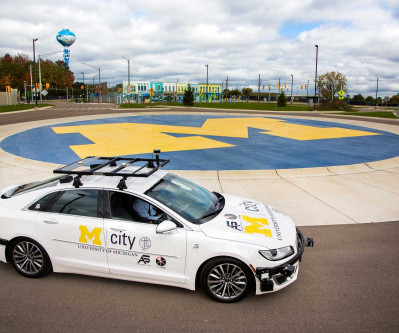DOT awards U-M-led hub $15M for connected and automated transportation
Green Car Congress
MARCH 1, 2023
The US Department of Transportation has awarded a $15-million grant to renew the Center for Connected and Automated Transportation (CCAT), based in Ann Arbor and led by the University of Michigan. Announced in 2016 and funded with $15.76 The courses reached students at Washtenaw Community College, Purdue University and U-M.

















Let's personalize your content